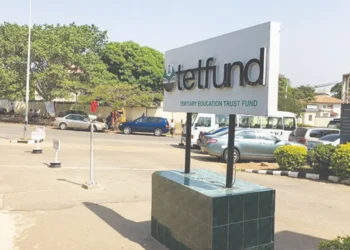A groundbreaking global report, AI-Powered Cities of the Future by Deloitte and ThoughtLab, has laid bare a formidable trend: cities from Singapore to San Francisco, Nairobi to Paris are racing headlong into the AI revolution — transforming public service, infrastructure, and economic growth with data-driven precision. Yet Nigeria, Africa’s largest economy and most populous nation, remains conspicuously absent in the AI leadership table.
Not one Nigerian city—whether Lagos, Abuja, Port Harcourt, Kano, or Kaduna — has secured a spot among the 49 global leaders in AI-powered urban innovation. Even more worrisome, none have reached the “advancers” bracket where cities are actively scaling their AI capabilities. As regional rivals in Kenya, South Africa, and Tanzania surge ahead, it’s time for Nigerian leaders in government, business, and industry to ask: Why are we missing out?
The Nigerian Reality Check
Across Nigeria, the status quo is far from futuristic. Our urban centres remain tethered to manual processes, fragmented data systems, and sluggish public services that have little to do with the dynamic innovations witnessed abroad.
Key reasons for this lag include:
- No coherent national AI policy for cities.
- Inadequate digital and data infrastructure and investment.
- Limited AI skills in both the public and private sectors.
- Scant investment in AI research and deployment for critical sectors.
While the UAE has launched a Ministry of AI, Singapore has executed a nationwide AI strategy since 2019, and even Kenya’s Digital Master Plan integrates AI technologies, Nigeria’s draft National AI Strategy remains just that — a draft! The time to move from paper to practice is now.
Why Nigeria Must Embrace AI—Fast
Artificial Intelligence is no longer a luxury reserved for the future — it is the infrastructure to pave the way for economic transformation, growth and prosperity for Nigeria. It is the digital backbone that can make cities smarter, safer, and more efficient. Around the world, AI applications are streamlining everything from traffic management to emergency response, from healthcare improvements to transparent governance. Imagine:
- Lagos is using predictive analytics to manage its notorious flooding, waste management, and traffic congestion.
- Abuja harnessing generative AI to automate citizen services and cut bureaucratic red tape.
- Port Harcourt deploying smart systems to enhance waste management and urban cleanliness.
- Kano and Kaduna boosting public safety with cutting-edge surveillance and crisis management.
These are not futuristic fantasies — they are successes already achieved by cities like Singapore, Dubai, and even regional peers such as Dar es Salaam and Dakar.
The Price of Inaction
By sidelining AI, Nigeria risks deepening the developmental chasm with the rest of the world. AI leaders are proving to be better equipped to handle everything from climate change to economic shocks, driving efficiency, transparency, and citizen engagement along the way. If we do not act now, we risk being left behind by a generation.
Practical Steps for Nigeria Cities to Join the AI Race
To steer our cities into the digital era, Nigerian decision-makers, across both the national and sub-national levels, public and private sectors, must act decisively. Here are the actionable steps:
1. Develop a National Urban AI Strategy
Develop a comprehensive “Nigeria AI City Strategy” with clear policies, incentives, regulations, and funding mechanisms to drive AI integration in urban planning and service delivery.
2. Invest in Digital Infrastructure
Build robust platforms by deploying smart sensors, cloud solutions, and open data systems that can power AI initiatives. Public-private partnerships will be key to modernising our infrastructure.
3. Appoint Chief AI Officers:
Follow the lead of cities like Dubai. Nigerian states and local governments need tech-savvy leaders to champion AI projects, drive training, and ensure accountability. The sub-national
government must appoint a Chief AI Commissioner or Advisors with clear mandates from the Executive Governors.
4. Build Local Talent and Ecosystems:
Collaborate with universities, technical institutions, and innovation hubs to embed AI and data science in the educational curriculum. Launch AI bootcamps, support scholarships, and foster partnerships with global tech firms to create a homegrown technology talent pool.
5. Empower Local Startups:
Give Nigerian innovators the space they need to test and scale AI solutions by establishing “AI Sandboxes.” Encourage funding and ease regulations to let startups flourish.
6. Deploy Pilot Projects in Key Areas:
Start small but think big. Initiate pilot projects such as AI for Agriculture in Kaduna, Plateau, Calabar, AI chatbots for Service Delivery across Local Government Areas, smart traffic systems such as in Lagos, Abuja, Kano, predictive maintenance for utilities, and AI tools in public education in Kaduna, Rivers, Delta, Bayelsa, and Imo. These initiatives can prove their worth and pave the way for broader adoption.
7. Ensure Responsible, Ethical AI:
Build governance frameworks that protect privacy, mitigate bias, and ensure that AI systems work inclusively for all Nigerians. Ethical deployment is key to citizen trust and long-term success.
The Path Forward
AI is rapidly becoming the new electricity that fuels modern cities. As the Deloitte and ThoughtLab report confirms, AI-powered solutions will contribute billions to national economies by 2030. For Nigeria, embracing AI isn’t just about technological advancement — it’s about job creation, improved public services, robust economic growth, and enhanced national security.
Nigeria has the raw ingredients — a vibrant tech community, a youthful population, and global recognition for our ingenuity and adaptability. What is needed now is a bold vision, strategic commitment, and political will at every level, from national down to sub-national government.
The digital revolution is here. It’s time for Nigeria’s cities to join the race, harness the power of AI, and win the future

















